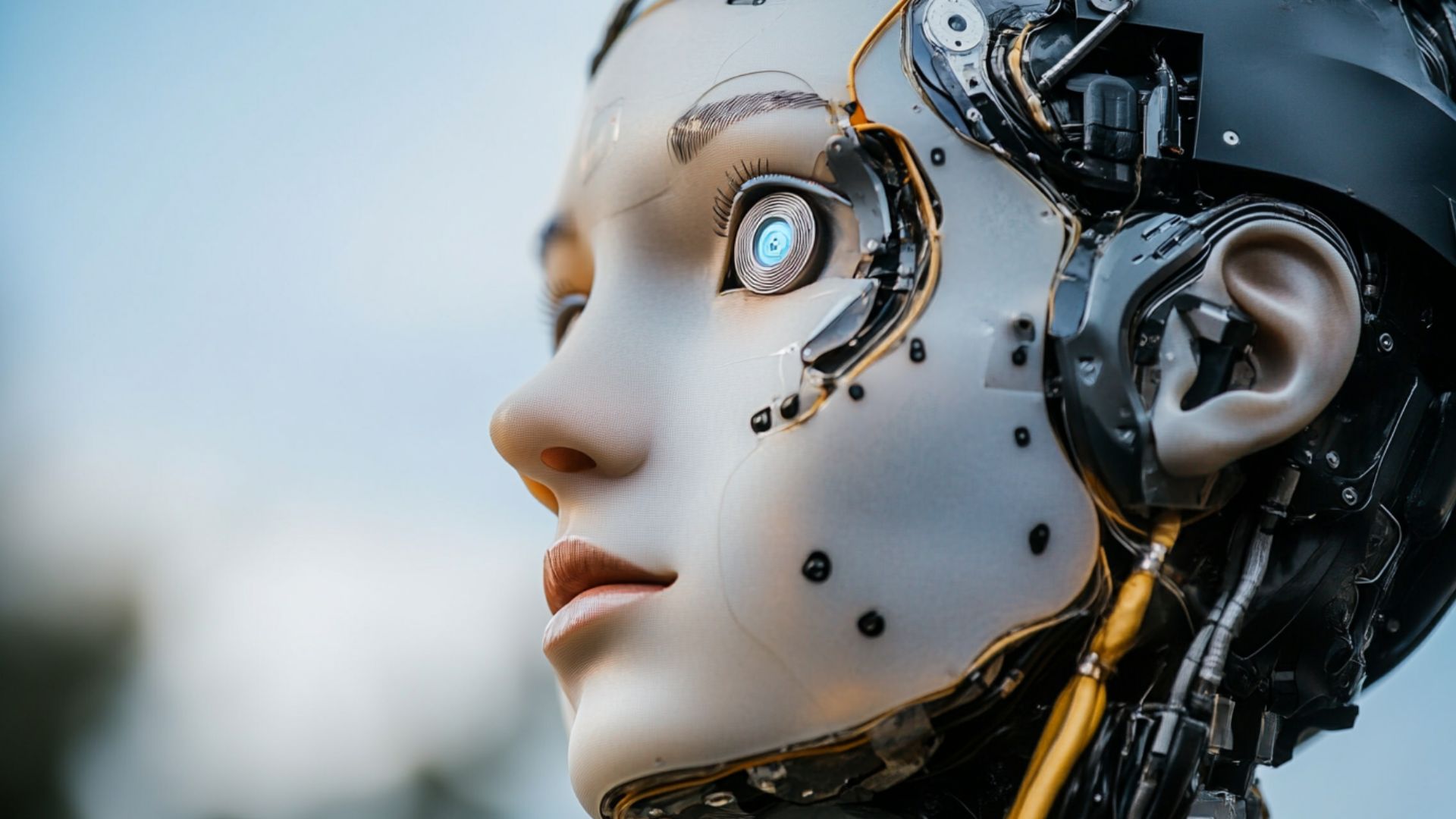Transforming Dental Practices: The Impact of AI on Patient Care

The dental industry is experiencing a significant transformation. It’s driven by the integration of AI. This new technology is set to revolutionize patient care. It can enhance evaluation, treatment planning, and boost the overall experience. These tools are empowering dentists with unprecedented capabilities. It enables them to deliver more precise and personalized care.
From automating administrative tasks to analyzing complex dental images, AI is streamlining work. It optimizes efficiency within dental practices. Furthermore, AI algorithms are assisting in the early detection of oral diseases, such as oral cancer. They pave the way for more proactive and effective interventions.
AI dental software continues to evolve. So, its potential to change dentistry is boundless. By harnessing the power of AI, docs can boost their practice. They can provide exceptional care to their patients and shape the future of healthcare.
Understanding AI Technologies in Dentistry
AI has infiltrated many aspects of the modern dental industry. It changes usual practices into more efficient and effective ones. Several AI techs are currently being employed in dental settings. Each contributes significantly to boosting client care:
- AI Software. This encompasses a wide range of software apps. They’re designed to streamline operations. These tools can robotize tasks. For example, appointment scheduling, client records control, and billing. It frees up docs and their staff to focus on client care. Also, AI can analyze client data. It helps in preventive care and practice control.
- Diagnostic Tools. AI for dentists is changing dental evaluation. It's by enabling more accurate and efficient identification of oral diseases. For instance, AI algorithms can analyze X-rays and CT scans. It is to detect subtle signs of abnormalities that may be missed by the human eye. This early detection can lead to more timely interventions and improved outcomes.
- Virtual Helpers. AI-powered virtual assistants are becoming increasingly common in medical practices. These helpers can interact with patients through chatbots or voice commands. They answer questions, provide info, and even schedule appointments. By offering convenient and accessible support, web helpers boost the overall client experience.
AI in Patient Diagnostics and Treatment Planning
AI for the teeth industry is playing a pivotal role in improving the accuracy and efficiency of dental evaluation. By analyzing vast amounts of client data, AI can find patterns and anomalies. Those may be indicative of oral diseases. For example, AI tools can analyze dental radiographs. It's to detect early signs of cavities, periodontal ailment, or even oral cancer.
Moreover, AI is assisting docs in developing personalized treatment plans. AI considers factors such as client demographics, medical history, and dental records. Algorithms can recommend tailored treatment options. This ensures that patients receive the most appropriate care for their unique needs.
The Role of AI in Patient Communication and Engagement
AI for the teeth industry is changing the way dental practices interact with their patients. AI assistants can provide instant responses to inquiries. It reduces wait times and improves satisfaction. These AI tools can also handle administrative tasks. They are appointment scheduling and reminders. It frees up main staff to focus on providing care.
Furthermore, artificial intelligence in dentistry can boost client engagement through personalized communication. By analyzing client data, dental practices can tailor their messaging. It's to address specific concerns or offer relevant info. This personalized approach can help build stronger relationships with patients and foster trust.
Enhancing Operational Efficiency with AI
AI is changing dental practices by robotizing administrative tasks and streamlining operations. This increased efficiency allows professionals to focus on providing quality care:
- Billing and Insurance. Artificial intelligence in dentistry can robotize billing processes. It reduces errors and speeds up claims processing. By analyzing client insurance info and treatment codes, AI can calculate and submit claims. It cuts the need for manual intervention. This not only boosts efficiency. It also reduces the risk of billing errors and denials.
- Record-Keeping. AI in dental diagnostics can digitize and organize records. It makes them easily accessible and searchable. This cuts the need for manual filing and retrieval. It saves time and reduces the risk of lost or misplaced records. Also, AI can analyze client data. It can identify trends and patterns. It aids in preventive care and practice control.
- Appointment Management. AI scheduling tools can set appointment times. It reduces wait times for patients and maximizes practice efficiency. These tools can automatically send appointment reminders. It reduces no-shows and improves client engagement. Furthermore, AI can analyze appointment data. It's to identify peak times and adjust scheduling accordingly. It ensures a smooth and efficient workflow.
- Inventory Management. AI dental apps can help dental practices control their inventory more effectively. It's by tracking stock levels, identifying low-supply items, and robotizing reorder processes. This ensures that the practice always has the necessary supplies on hand. It cuts downtime and disruptions to client care.
By robotizing these administrative tasks, AI frees up dental professionals. They can focus on providing personalized care and building stronger relationships with patients. This not only improves client satisfaction. It also contributes to the overall success of the practice.
AI-Powered Patient Care: Real-World Applications

Dental AI software is rapidly changing the dental landscape. There are many practices successfully implementing AI techs. They are to boost client care and improve operational efficiency. Here are a few real-world examples:
- Early Detection of Oral Cancer. A dental practice in the US used AI tools to analyze radiographs. The software accurately identified early signs of oral cancer in a client who had no visible signs. This early detection allowed for prompt treatment. It significantly improved the chances of recovery.
- Personalized Treatment Planning. A clinic in Europe used AI to develop personalized treatment plans. By analyzing client data, including medical history, dental records, and radiographs, the software recommended tailored treatment options. It ensured that each client received the most appropriate care for their individual needs.
- Boosted Communication and Engagement. A practice in Australia deployed a bot to interact with patients and answer their questions. It provided instant responses. It reduced wait times and improved client satisfaction. Also, the bot helped schedule appointments and send reminders. It streamlined administrative tasks and freed up staff to focus on providing care.
- Boosted Efficiency and Productivity. A dental practice in Canada used an AI dental app. It's to robotize administrative tasks, such as billing, record-keeping, and appointment control. This increased efficiency allowed the practice to see more patients. It allowed improved satisfaction and increased revenue.
These are just a few examples of how AI is being used to transform dental practices. AI continues to advance. So, we can expect to see even more innovative apps. Those will further improve client care and streamline dental operations.
The Future of AI in Dentistry
As AI for dentistry continues to evolve. So, its potential to revolutionize dentistry is boundless. Emerging techs and advancements in AI research will shape the future of oral areas.
One promising area of development is the integration of AI with AR and VR. AR tools can help docs in visualizing complex procedures. And they can help with providing patients with a better understanding of their treatment options. VR tech can be used for training and simulation. It can enhance the skills of dental professionals.
Furthermore, AI robotics is poised to play a significant role in dental procedures. Robotic systems can perform tasks with precision and accuracy. It will reduce human error and improve outcomes. For instance, robotic-assisted surgery can enable minimally invasive procedures. It will result in faster treatment times and reduced discomfort.
However, the integration of AI for dental practice also presents challenges. Data privacy and security concerns must be addressed to protect client info. Also, ensuring the ethical use of AI in decision-making processes is crucial. AI becomes more sophisticated. So, it's essential to establish guidelines and regulations to prevent unintended consequences.
Despite these challenges, the future is bright. By embracing AI technologies and addressing potential issues, dental professionals can harness the power of AI to deliver exceptional care, improve client outcomes, and shape the future of oral healthcare.
However, no matter what the future holds. Our AI-powered assistant is the solution you've been waiting for. With advanced features like appointment scheduling, client communication, and data control, our bot can boost your efficiency.
Here's how our AI can benefit your practice:
- Appointment Scheduling. Our AI assistant can automatically schedule and manage appointments. It reduces no-shows and frees up your time to focus on client care.
- Client Communication. Our AI for dentistry can send automated reminders, appointment confirmations, and post-treatment instructions. It improves patients satisfaction and reduces administrative burden.
- Data Management. Our bot can securely store and control patients' data. It ensures compliance with industry regulations and streamlines your record-keeping process.
- Enhanced Efficiency. Our bot can help you increase your practice's efficiency and productivity. It allows you to see more patients and earn more revenue.
Ready to take your practice to the next level? Try our bot today and experience the difference it can make. Sign up now for a free demo. And see how our AI can benefit your patients and your business.


